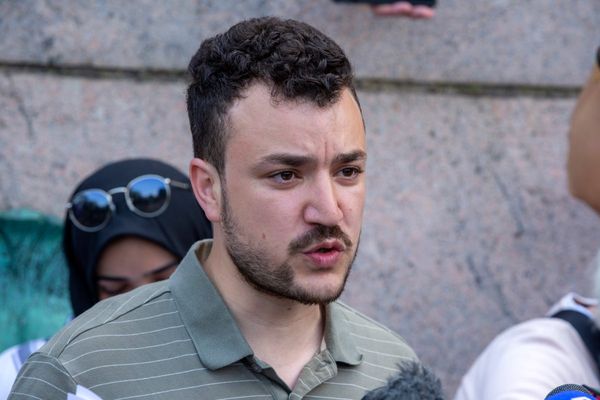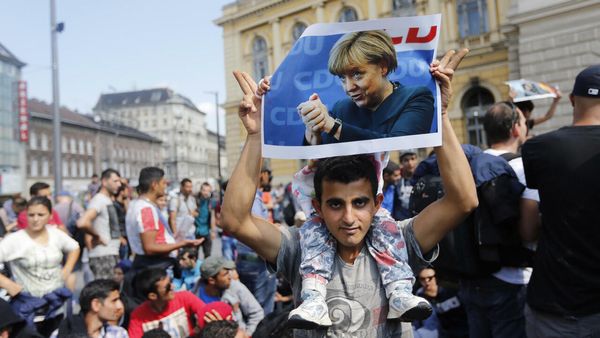
Donald Trump’s gambit of suggesting an August trial date to the federal judge overseeing his criminal case on retaining classified documents could mean the federal election interference case could be boxed out of Trump’s legal calendar and not proceed to trial before the 2024 presidential election.
The former president last week proposed to the US district judge Aileen Cannon a schedule for pre-trial motions that culminated in a trial starting in Florida around the start of the summer.
Trump’s lead lawyer, Todd Blanche, has repeatedly made clear their preference is to delay the trial until after the 2024 election, arguing the only reason that prosecutors in the office of the special counsel Jack Smith wanted to go before November was because they wanted to impact the election result.
But with Trump unlikely to receive a delay of such magnitude, Blanche suggested in court filings and at a contentious scheduling hearing last week in Fort Pierce, Florida, that if Trump had to go to trial before the election, the earliest possible date would be around 12 August.
The rationale, Blanche claimed, was that Trump needed to attend his trial in his New York criminal case, on charges that he falsified business records in trying to hide hush-money payments to an adult film star before during the 2016 campaign, which is scheduled to last six weeks from the end of March.
And after taking into account the extensive legal battles over what classified documents could be used by prosecutors at trial, Blanche added, the most realistic trial date Trump’s lawyers estimated was August.
Left unsaid was the convenient logistical impact an August trial date would have on Trump’s stalled election interference case in Washington.
Should Cannon accept the August trial date proposed by the Trump legal team for the classified documents trial – a trial that could take between two to three months to complete – it could have the catastrophic effect of boxing Trump’s legal calendar ahead of the 2024 election.
The calculus would work like this: April and May are accounted for because Trump would be on trial in New York, while August, September, November would be out because Trump would be on trial in Florida. That would leave only June and July for the Washington case to go to trial.
But the US district judge Tanya Chutkan, who is presiding in Washington, is increasingly unlikely to be able to schedule Trump’s trial during those two months because Trump’s presidential immunity claim has put the case on hold while the US supreme court considers that appeal.
The supreme court has scheduled oral arguments for 25 April for the immunity claim. Even if the court rejected Trump’s claim by May, it would not be possible for Trump to go to trial before the election because he has roughly three months left on the clock to prepare his trial defense.
Prosecutors complained about Trump trying to weaponize each of his criminal cases to box out the calendar, and suggested a more expedited schedule that projected Trump potentially going to trial in the classified documents case on 8 July.
The July suggestion was met with a cold reception from Cannon, however, after she said at least one of the deadlines in the government’s proposed schedule, concerning how long it would take to resolve some of Trump’s pre-trial motions, was “unrealistic”.
If Trump could choose which case should go to trial before the election, it would almost certainly be the classified documents case given Cannon has to date given more deference to the Trump legal team and could severely gut the evidence that prosecutors are hoping to introduce at trial.
Depending on how the next few months play out, Cannon could dramatically reduce the scope of the prosecution by chilling prosecutors’ willingness to continue to charge certain classified documents or deem inadmissible some of the strongest evidence about Trump’s alleged obstruction of justice.
The previous six months have shown that even with delays becoming apparent, Cannon invariably decides to reconsider or reset deadlines at the last moment, which itself has had the effect of pushing back the entire trial schedule by weeks or months.
For example, Cannon initially ordered a May 2024 trial last July, but then waited several months after it was clear that May was unfeasible before issuing a new set of deadlines last November. Cannon then set a schedule that had the effect of delaying the case by at least four months.
Cannon’s record of taking her time with litigation could mean that even if she sets a trial for August, any more delays could push back the actual trial start date further, which could mean neither Trump’s Florida case nor the Washington case might go to trial before the 2024 election.







